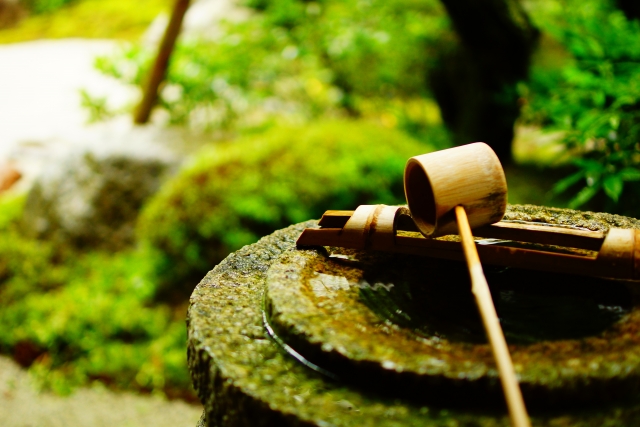海外の人が大絶賛‼️日本🇯🇵の静けさと街並みの美しさ‼️
Japan’s Problem with Noise Pollution
Feel woolly-headed, distracted and overwhelmed, but not sure why? The answer may be in the sound waves of the city.Despite Japan’s international image as a country of serene temples and quiet gardens, according to a 2018 report by the World Health Organization, Japan is the noisiest country in the world.
To prevent negative effects, the WHO recommends avoiding being exposed to noise over 53 decibels. The legal average limit in Japan is about 70, a number based on data 50 years out of date, according to Prof. Matsui of Hokkaido University who spoke about the problem in an NHK feature on noise pollution in Japan.
Japan is the noisiest country in the world.
While the WHO’s numbers are likely to be a bit skewed due to the vast size of Japan’s major cities and the presence of several noise-creating airbases, there is definitely more than a grain of truth to this decibel-intense soundscape.Even in local news concerns about noise pollution are rising with noise coming in as one of the top reasons citizens complain to the Environment Dispute Coordination Commission, a government organization that oversees environmental disputes.
Noise pollution in Japan’s cities
Of course, in rural areas, there are plenty of pockets of quiet. But in major cities, the combination of a culture of constant intrusive alerts and warnings, salespeople screaming out deals and stores’ background music, thin walls and seasonal (obnoxiously loud) local election campaigning, creates a situation in which your ears are constantly under attack — whether you’re consciously aware of it or not.Japanese train stations, in particular, seem to be a haven of noise, with constant overlapping announcements and megaphone-wielding staff. In 2008 a doctor independently measured the sound levels of several stations and found that Tokyo hubs like Ueno and Tameike-Sanno were buzzing around 100 decibels, almost double the WHO’s recommended 53.
woolly-headed: 頭の混乱した、もじゃもじゃ頭の
distracted: 乱れた、気の散った
overwhelmed: 圧倒させられた
serene: 静寂な
expose: さらす
decibel: デシベル(音の強さを表す単位)
noise pollution: 騒音公害
skewed: 歪んだ
airbase: 空軍基地
a grain of truth: 一抹の真実
soundscape: 音の環境、音風景
intrusive: 侵入する、邪魔な
obnoxiously: 不快なほど、あきれるほど

これ読んでると、ちょっとびっくりしちゃうね。そうだったのか〜って感じ。

海外の記事やSNSで、こういう視点ってよく見かけるよね。自分も、海外の友達から何度か似たような話されたことあるよ。

ぼくも!
「日本って、静かな国かと思ってたのに、実際来てみたら全然違った!」って。禅とか、落ち着いた文化のイメージが強いみたいだけど、実際は街中がすごくにぎやかで、ちょっとギャップ感じるって言われたことあるなあ。

うん、ネオンとか看板も多いし、サウンドロゴや店内アナウンスも重なってて、まるでSFの世界みたいって言われたことある(笑)

わかる。でも不思議なのが、海外の人はそう感じても、日本の中ではあまり「騒音」って問題として意識されてないよね。

そうそう。自分も話題に出すと「え、そんなこと考えたこともなかった」って反応されること多いよ。あまり気にしてないというか、慣れちゃってるのかな。

この記事にもあったけど、「うるさい」って単なる不快感じゃなくて、ちゃんとした「公害」として扱われることもあるんだよね。健康に関わることでもあるし。

うん、海外では Noise Pollution(騒音公害)ってしっかり言葉があって、対策も考えられてる。けど、日本ではそういう概念自体があまり広まってない気がするな。

たぶん、生まれたときからそういう環境だから、それが「普通」になってて、あえて意識することもないのかもね。

記事の ”a situation in which your ears are constantly under attack — whether you’re consciously aware of it or not” っていう一文、すごく印象的だったなぁ。ほんと、その通りって思った。多くの日本人には意識に上らないんだよ。
ほとんどの人がこういったの⬇️、意識してないんだろうなぁ。
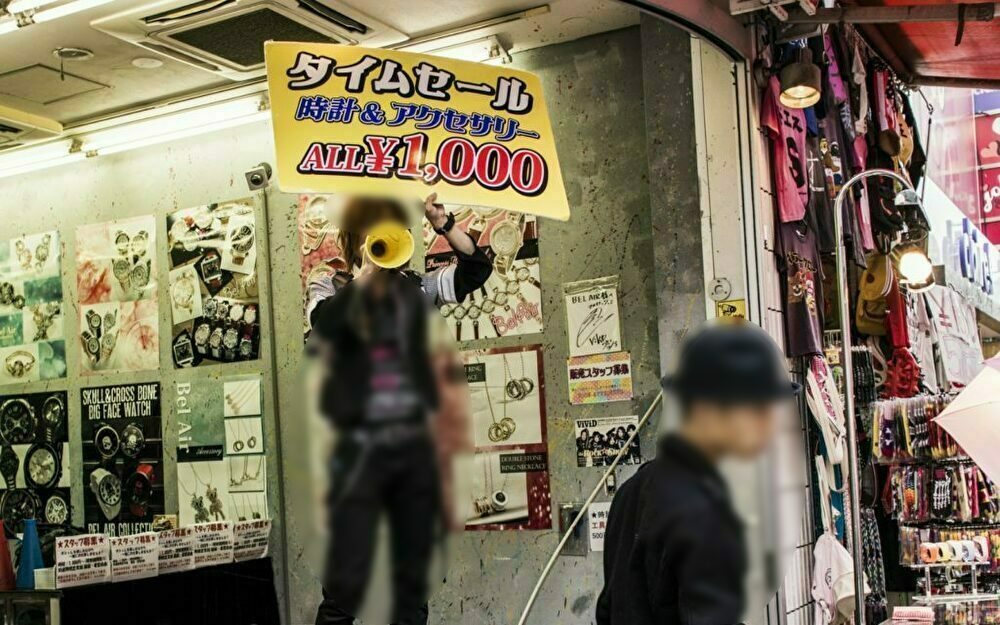
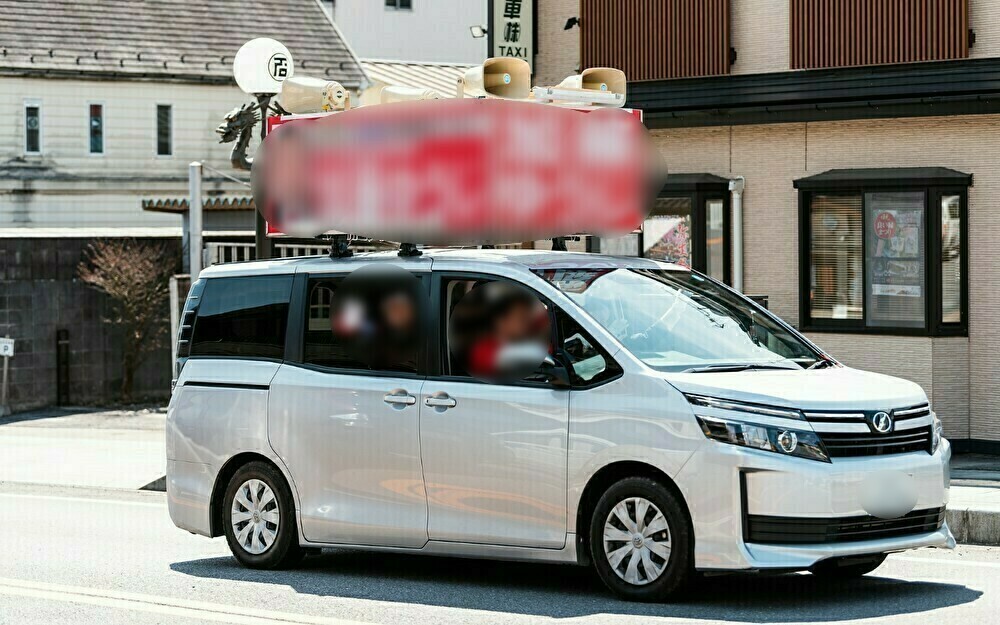
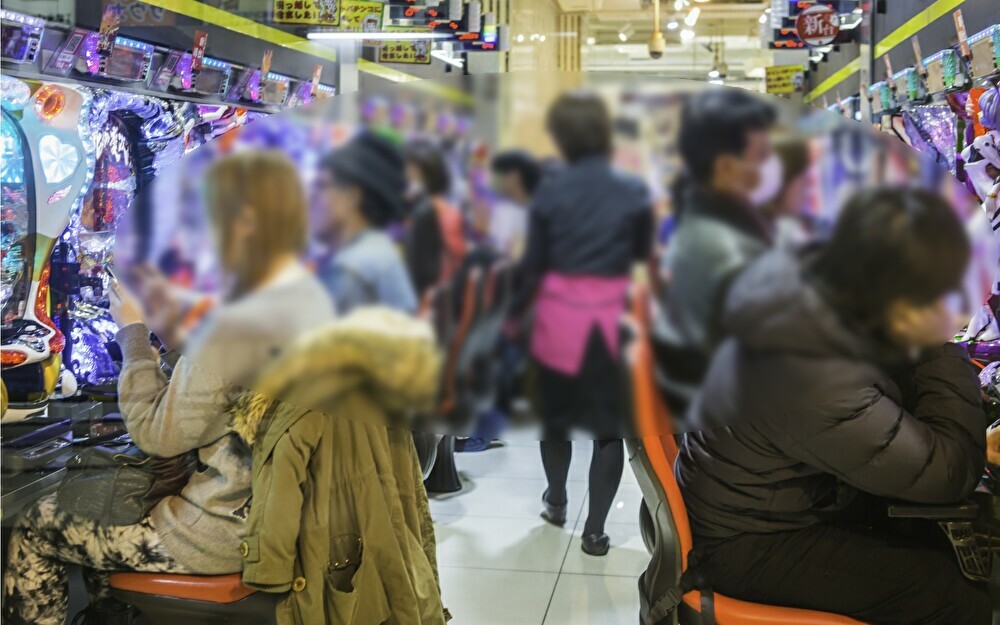
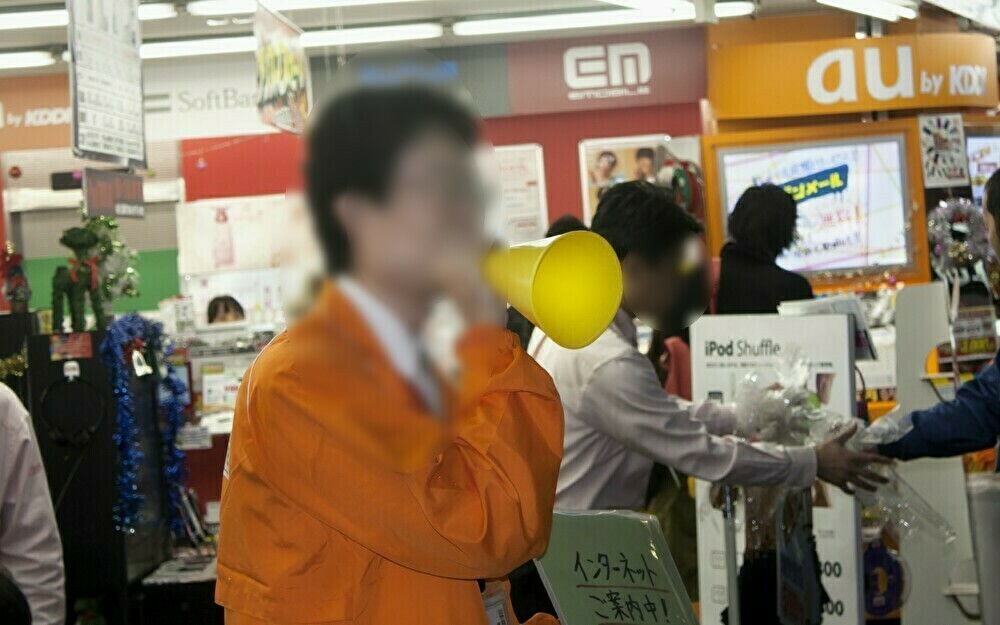

(画像出典: GaijinPot)

無自覚なまま、ずっと音にさらされてるっていうのは、ちょっと怖くもあるよね。

でもまあ、慣れってある意味すごいなって思う(笑)
気にしなければ平気っていうのも、ある種の適応力かもしれない。

たしかに。東京みたいな街で暮らしてると、自然と“雑音と共にある生活”に馴染んじゃうのかもね。

うん、ある意味、現代の「禅」かも(笑)日常の喧騒の中でも、心を乱さずにいられるっていう。

そう思うと、日本人の“鈍感力”って、実はすごいスキルなのかも……。
